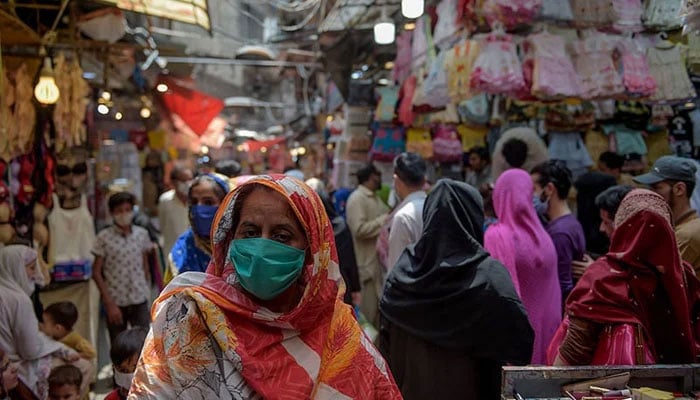Pakistan’s reform dilemma
LAHORE: Achieving sustainable economic growth is challenging when the private sector resists essential reforms, as investment flows tend to favour stable, transparent environments governed by fair regulations.
In Pakistan, businesses often resist tax enforcement, labour laws and regulatory compliance, making the investment climate less attractive and stalling reforms. For genuine investment to come into Pakistan, businesses must operate within a system where rule of law and regulatory compliance are consistently upheld.
This is the dilemma Pakistan has faced for decades. The state often adopts a defensive stance on reforms, pleading with the private sector to support genuine national interests, instead of taking assertive action. Reforms are delayed when resistance grows. This year’s most burdensome tax has fallen on the salaried class. White-collar workers subject to this tax lack the street power of traders and the influence of certain business sectors and feudal lords. While the higher tax on salaries was enforced immediately, a lighter tax on traders -- likely far below their economic worth -- has been delayed, even four months after the federal budget’s passage.
The government lacks the resolve to confront traders, who should be brought under a fair tax net with accurate financial records. In cases where higher taxes are proposed, the minimum tax should be enforced until any issues are resolved within a strict timeframe.
In Pakistan, the government often relies on a ‘carrot and stick’ approach, which has seen limited success. The private sector tends to welcome incentives but reacts defensively to inspections and monitoring. A significant part of the issue is selective enforcement, where regulations are inconsistently applied, allowing for non-compliance and entrenching the status quo. Enforcing policies consistently will require stricter laws to ensure regulatory decisions are carried out with integrity. Any state actor granted the discretion to ‘bend’ rules risks undermining public trust and fostering corruption.
In recent years, judicial interpretations have also delayed the implementation of many policies. The judiciary should not hold unchecked authority to reinterpret the constitution, a role ideally reserved for the legislature, which is accountable to the electorate. While judicial interpretation is essential, it should reflect legislative intent and remain within constitutional boundaries.
Addressing corruption and external influences in law enforcement is crucial. It would be a great relief to the poor, who lose productive time and limited resources to petty bribes. Establishing an independent, transparent authority to oversee police appointments, postings and transfers could help reduce political interference and promote accountability. Rather than being controlled by the ruling elite, this process should be based on transparent rules that ensure fairness and reduce officers’ susceptibility to corruption. Robust oversight bodies and accountability mechanisms within the police force could help support a merit-based system that discourages favouritism and graft.
-
 Kelly Osbourne's Mom Sharon Receives 'shut Up' Call Accepting An Award For Late Hubby?
Kelly Osbourne's Mom Sharon Receives 'shut Up' Call Accepting An Award For Late Hubby? -
 Claude Overtakes ChatGPT On Apple App Store After Pentagon Dispute
Claude Overtakes ChatGPT On Apple App Store After Pentagon Dispute -
 What Happened To Ayatollah Ali Khamenei's Family During US -Israel Attack On Iran
What Happened To Ayatollah Ali Khamenei's Family During US -Israel Attack On Iran -
 BRIT Awards 2026 Winners Revealed
BRIT Awards 2026 Winners Revealed -
 Shia LaBeouf Arrested Again In New Orleans On Additional Battery Charge
Shia LaBeouf Arrested Again In New Orleans On Additional Battery Charge -
 Shamed Andrew Upset With THIS Family Member Over Current Condition
Shamed Andrew Upset With THIS Family Member Over Current Condition -
 Michael Jackson Estate Sued With Allegations Of Years Of Abuse From Late Singer
Michael Jackson Estate Sued With Allegations Of Years Of Abuse From Late Singer -
 Meghan Markle Shows ‘real Pain’ With Her Body Language In Jordan
Meghan Markle Shows ‘real Pain’ With Her Body Language In Jordan -
 Jennifer Garner Names Her Movie That She Hasn't Seen In Full Since Its Premiere
Jennifer Garner Names Her Movie That She Hasn't Seen In Full Since Its Premiere -
 Bridgerton’s Michelle Mao On Facing Backlash As Season Four Antagonist
Bridgerton’s Michelle Mao On Facing Backlash As Season Four Antagonist -
 King Charles Gets New ‘secret Weapon’ After Andrew Messes Up
King Charles Gets New ‘secret Weapon’ After Andrew Messes Up -
 Shia LaBeouf Makes Bold Claim About Homosexuals In First Interview After Mardi Gras Arrest
Shia LaBeouf Makes Bold Claim About Homosexuals In First Interview After Mardi Gras Arrest -
 Princess Beatrice, Eugenie ‘strained’ As They Are ‘not Turning Back’ On Andrew
Princess Beatrice, Eugenie ‘strained’ As They Are ‘not Turning Back’ On Andrew -
 Benny Blanco Addresses ‘dirty Feet’ Backlash After Podcast Moment Sparks Online Frenzy
Benny Blanco Addresses ‘dirty Feet’ Backlash After Podcast Moment Sparks Online Frenzy -
 Sarah Ferguson Unusual Trait That Confused Royal Expert
Sarah Ferguson Unusual Trait That Confused Royal Expert -
 Prince William, Kate Middleton Left Sarah Ferguson Feeling 'worthless'
Prince William, Kate Middleton Left Sarah Ferguson Feeling 'worthless'




